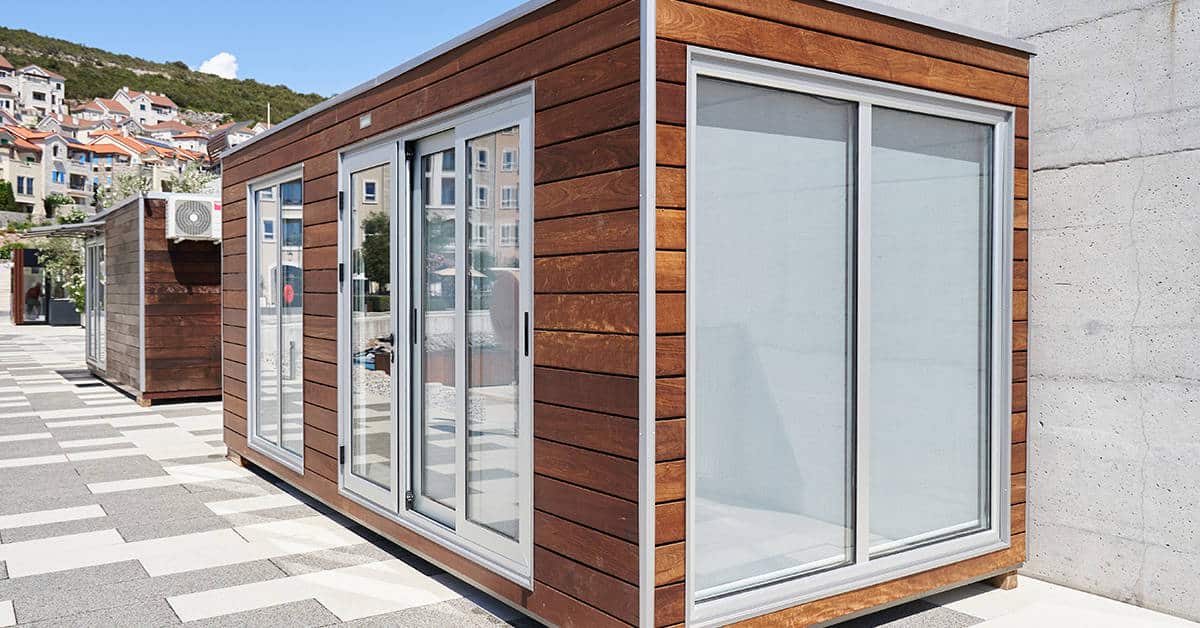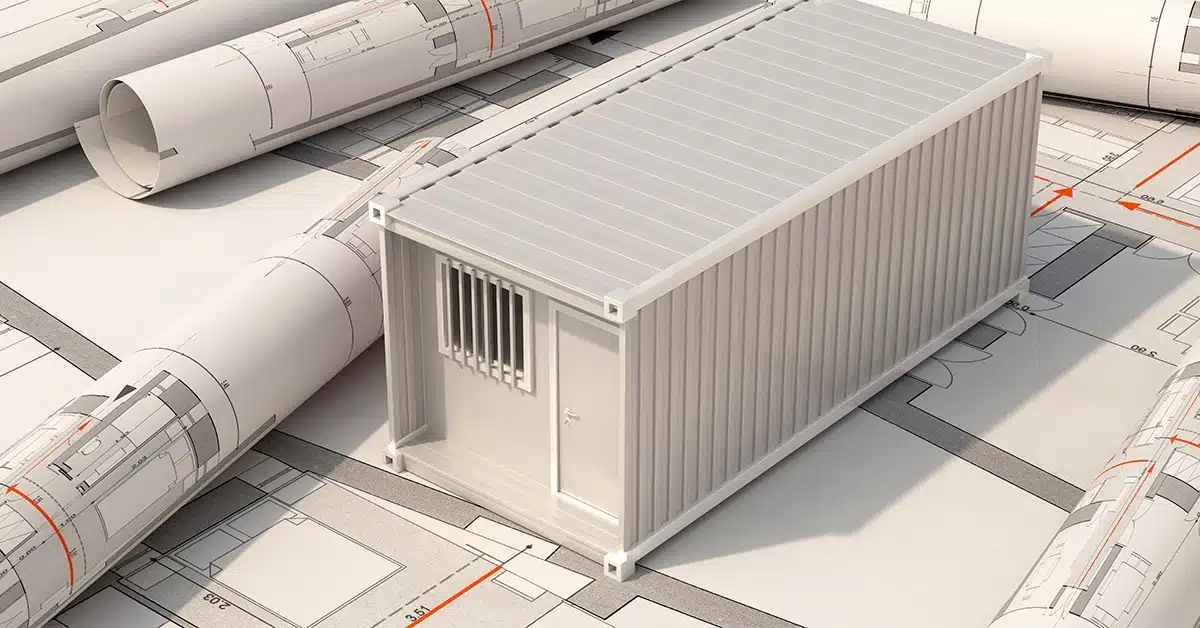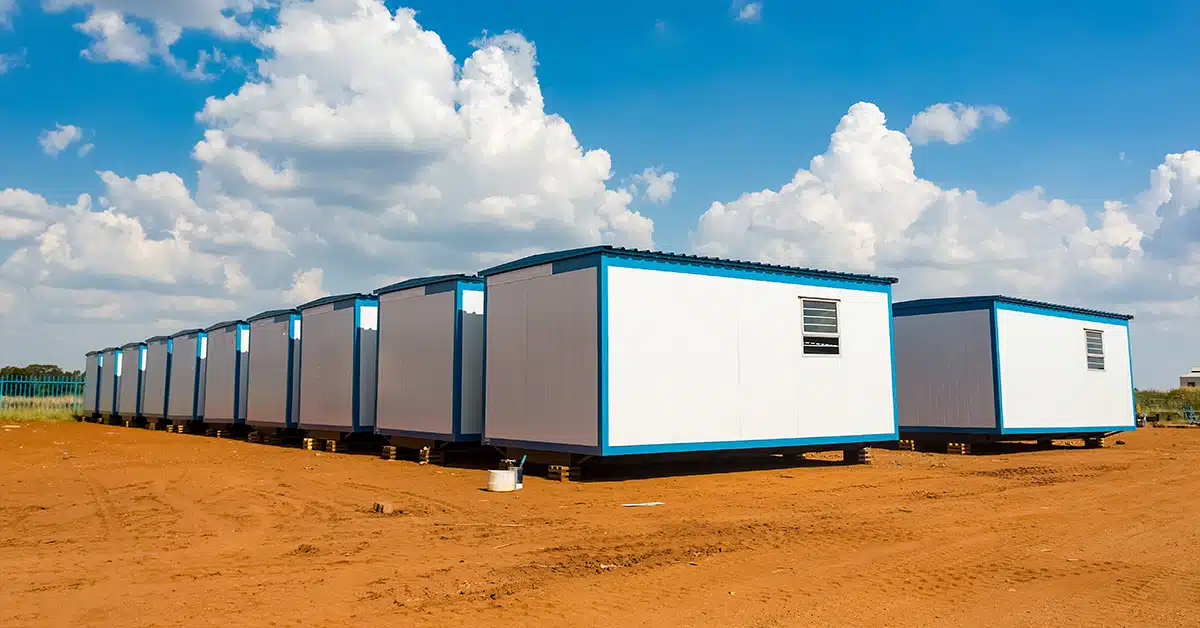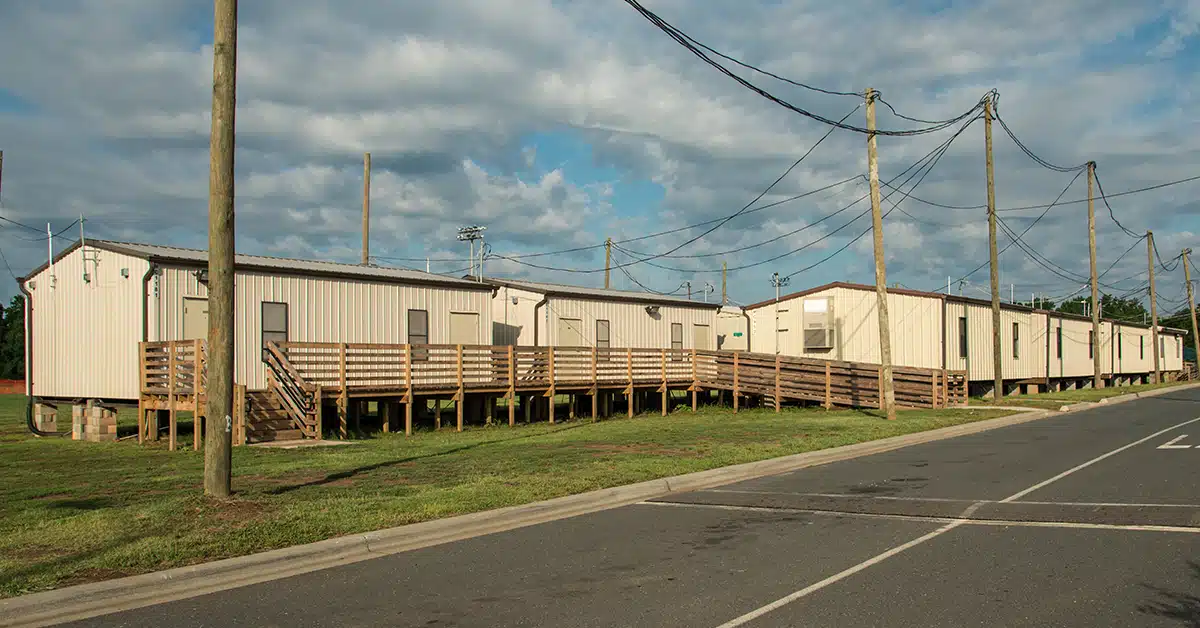Portable buildings, or transportable structures, offer a convenient solution for temporary space requirements. These structures are designed off-site and delivered fully constructed, offering a high degree of flexibility and adaptability. This article explores the advantages of portable buildings, differences between portable and modular buildings, and when it’s best to consider a portable building for your needs.
Unraveling the Concept of a Portable Building
A portable building, as the term indicates, is a moveable structure not fixed in one location. These off-site constructed buildings arrive as a finished product, without the need for any foundations. Depending on the use, they may be connected to power and water sources.
This flexibility makes portable buildings a versatile solution for various scenarios – from events and construction sites to temporary classrooms and pop-up stores, where a permanent building may not be necessary.
Portable Buildings vs. Modular Buildings: Understanding the Difference
While there are similarities, portable and modular buildings are distinct. Portable buildings are standalone structures that arrive fully constructed. In contrast, modular buildings consist of two or more individual “modules” delivered and arranged on-site using a crane.
Advantages of Opting for Portable Buildings
Portable buildings provide numerous benefits to business leaders, professionals, and even homeowners. They range from being an ideal solution for backyard storage to functioning as a temporary office on a construction site.
These structures are a particularly excellent choice for businesses or construction sites. Let’s explore some of their key advantages:
- Quick to Manufacture: Portable buildings, like portable cabins, can be produced faster than permanent structures. Fewer parties are typically involved in the manufacturing process.
- High Security: Many portable structures are built from strong steel and can be reinforced with sturdy locks for added security.
- Cost-Effective: The materials used in portable buildings are usually bought in bulk, making them an economical choice for large projects or long-term use. Also, factory labor tends to be cheaper than on-site workers.
- Consistent Quality: Unlike permanent structures that may have potential design flaws, portable buildings are built to a high, tested standard.
- Reusable and Waste Reducing: Portable buildings can be relocated at the end of a project, reducing waste and saving money.
- Integration Capabilities: Portable buildings can seamlessly expand existing sites or buildings, such as modular classrooms, pop-up shops, and changing facilities.
Why Choose Portable Buildings?
There are several reasons why portable buildings might be your best option. These structures are an excellent choice if you are:
- Operating on a tight budget: Portable buildings are cheaper to manufacture, don’t require foundations, and may not need to connect to a power or water supply.
- In need of secure storage: Portable buildings, especially those made of steel, offer robust and secure storage solutions.
- Limited in on-site space: These buildings can be stacked to maximize available space, and their position can be easily changed as needed.
- Concerned about quality: Offsite manufacturing, such as for portable buildings, has been found to deliver higher construction quality.
- Short on manpower: Opting for a portable building allows you to outsource the construction and delivery to an external company, freeing up your resources.
Embracing the Full Potential of Portable Buildings
With their versatility, cost-effectiveness, and high quality, portable buildings can be an excellent solution for various scenarios. However, the right type of portable building for your needs will depend on your specific circumstances.
Get in touch with RDI Enclosures & Systems today for a confidential, no-obligation discussion about your requirements. With our years of experience, we’ll help you find the best portable building solutions for your project or event.






